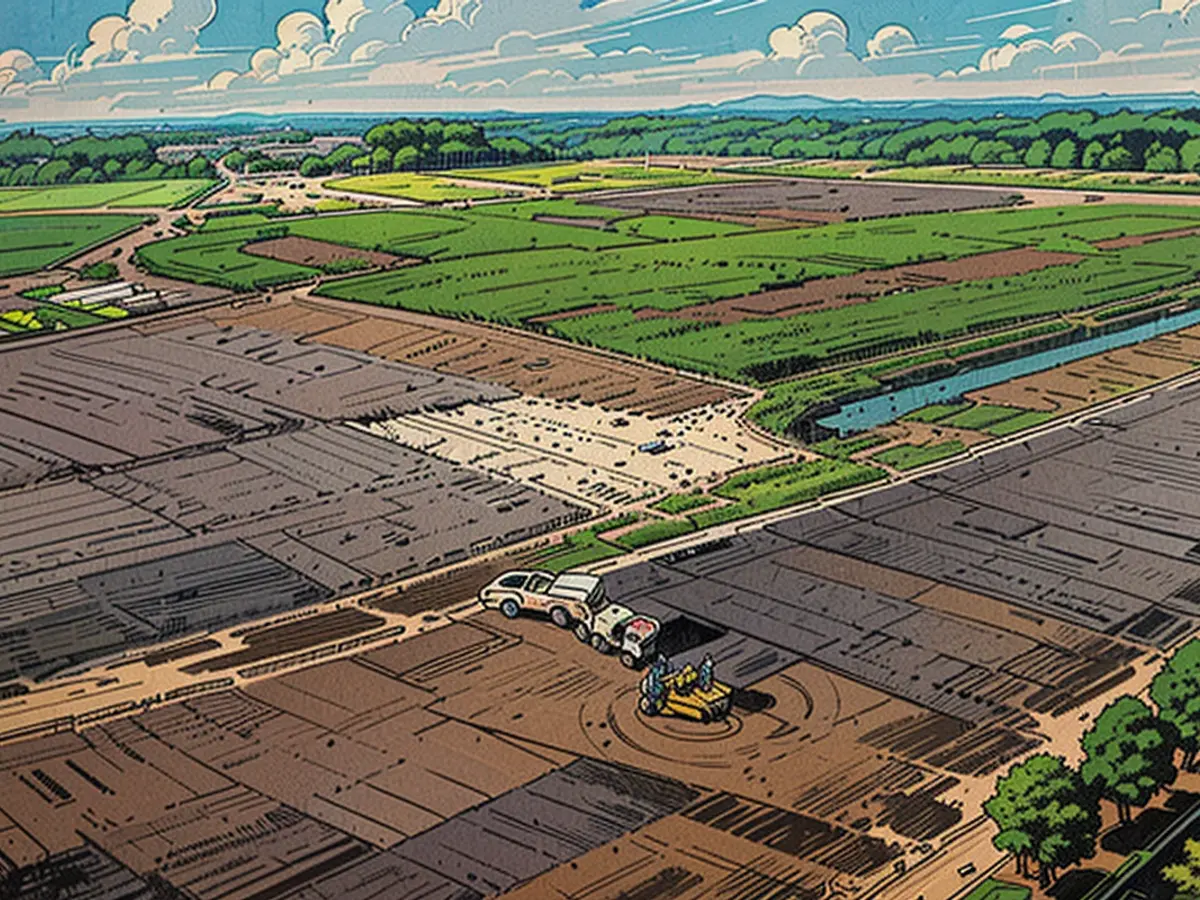Inquisition into the Multitude of Announced Chip Manufacturing Facilities
In Dresden's northern area, significant figures such as TSMC CEO C.C. Wei, German Chancellor Olaf Scholz, European Commission President Ursula von der Leyen, and Saxony's Prime Minister Michael Kretschmer gathered at an industrial park in Klotzsche district for a significant occasion. This event was the groundbreaking ceremony for the building of a modern chip factory, which would be led by TSMC, Bosch, Infineon, and NXP under the name European Semiconductor Manufacturing Company (ESMC). The aim was to primarily supply the automotive industry.
Pleased by this development, EU Commission approved a 5 billion euros subsidy for the German state supporting the ESMC project. The participating companies will also contribute 5 billion euros. Operations at the plant are predicted to commence in 2027, resulting in approximately 2000 job creations. The establishment of semiconductor manufacturing in Europe is a strategic endeavor aimed at minimizing the continent's dependence.
The TSMC factory in Dresden is merely the beginning of such projects, with the official announcement of the project having occurred one year prior to the groundbreaking ceremony – a reasonable progress compared to other announced chip factories not progressing as swiftly.
Intel's financial troubles
The most significant investment is planned for Magdeburg, where Intel aims to inject 30 billion euros into two new facilities – with around a third of the amount coming from the government. However, EU approval for this is still pending. Additionally, Intel's business operations are far from optimal. Intel's CEO, Pat Gelsinger, recently announced a multi-billion-dollar cost-saving program, resulting in approximately 15,000 job losses worldwide, and a reduction in investment by more than 20%.
There are concerns this may also impact the Magdeburg project. However, the state government of Saxony-Anhalt has publicly denied this, while Intel has yet to make any official statements. Nonetheless, Gelsinger has internally committed to the investment programme, including Magdeburg.
The construction announcement for the project, which was made in 2022, was originally set for the first half of 2023, but was pushed back to the end of 2024. Currently, development work on a road is underway. Production is planned to start in 2027.
Wolfspeed's slow progress
US firm Wolfspeed, which specializes in power semiconductors made from silicon carbide, critical for growth sectors like photovoltaics and electric vehicles, plans to collaborate with automotive supplier ZF in Saarland's town of Ensdorf. The investment was announced early in 2023, but construction was scheduled to commence in the first half of the previous year – a delay that now has the diggers rolling in 2025.
One of the main reasons for this is the struggling business development at Wolfspeed, which reportedly has activist investor Jana Partners pressuring the company's management to re-evaluate certain investment projects, including the one in Saarland.
Coal-fired power plant demolition was completed in the Saarland town of Ensdorf at the end of June, and demolition work is currently ongoing. For the factory construction, an investment sum of 2.7 billion euros is currently being considered, with 700 million euros coming from state funds. Production is set to begin in 2027, with hundreds of jobs expected to be created.
Infineon makes steady progress
Infineon, the German semiconductor specialist, plans to invest 5 billion euros in its expansion near the TSMC factory in Dresden, resulting in 1000 new job creations. One billion euros of this will be provided in subsidies. According to CEO Jochen Hanebeck, the project is "running on schedule". In a recent interview with the Süddeutsche Zeitung, Hanebeck announced that equipment should be delivered within a year and production should begin in 2026. The groundbreaking ceremony for the project took place in 2023.
The construction start of the project, which was originally set for the first half of 2023, was later postponed to the end of 2024. Currently, work on a road access is underway. The planned start of production is 2027.
However, Infineon is also facing a profit decline and has initiated a cost-saving program, resulting in 2800 job losses in Europe. A plant in Malaysia, primarily targeting the Chinese market, has sparked controversy.
This article was first published on capital.de
Manufacturers such as TSMC, Bosch, Infineon, and NXP, collectively known as the European Semiconductor Manufacturing Company (ESMC), are spearheading the construction of the modern chip factory in Dresden, looking to primarily supply the automotive industry.
Despite Intel's financial troubles and the ongoing delay in its Magdeburg project, industry giants like TSMC and Infineon continue to make progress in semiconductor manufacturing in Europe, aiming to minimize the continent's dependence on external sources.








